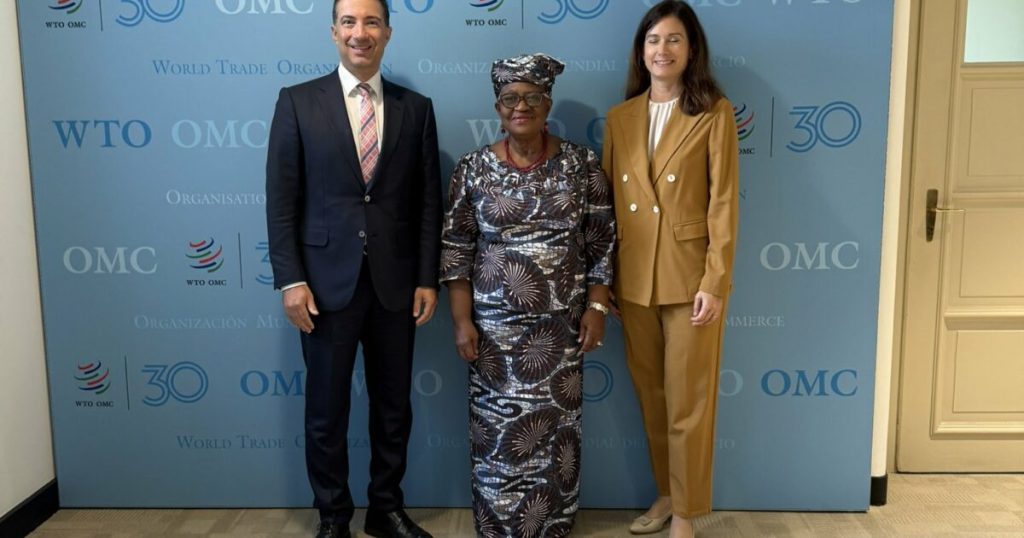Paragraph 1: The Evolving Landscape of Global Trade and the WTO’s Role
The global trading system has undergone a significant transformation in recent decades, characterized by increased interconnectedness, technological advancements, and the rise of new economic powers. However, this evolution has also brought forth a complex web of challenges, including rising protectionist sentiments, escalating trade tensions, and the persistent difficulty in reaching consensus on crucial trade reforms within the World Trade Organization (WTO). The WTO, as the primary international body governing global trade, plays a pivotal role in navigating these challenges and ensuring a stable and predictable trading environment. This involves fostering cooperation among member countries, resolving trade disputes, and promoting adherence to agreed-upon trade rules.
Paragraph 2: The WTO Director-General’s Engagement with Switzerland
Against this backdrop of evolving global trade dynamics, Dr. Ngozi Okonjo-Iweala, the Director-General of the WTO, recently engaged in high-level discussions with top Swiss parliamentary officials. This meeting signifies the importance of maintaining strong partnerships with WTO members, especially in the face of mounting trade tensions and protectionist tendencies. Switzerland, as a small, open economy heavily reliant on international trade, has a vested interest in a robust and functioning WTO. The discussions focused on the current tariff and trade challenges affecting Switzerland and the global trading system, emphasizing the need for collective action to address these pressing issues.
Paragraph 3: Addressing Tariff and Trade Challenges: A Collaborative Approach
The meeting between Dr. Okonjo-Iweala and the Swiss officials highlighted the significance of collaborative efforts to address tariff and trade challenges. These challenges include the proliferation of non-tariff barriers, the rise of digital trade, and the increasing complexity of global value chains. Discussions centered around strategies to navigate these complexities, promote trade facilitation, and ensure a level playing field for all WTO members. Switzerland’s perspective as a small, highly developed economy provides valuable insights into the impact of trade policies on diverse economic actors.
Paragraph 4: Reforming the Multilateral Trading System: A Crucial Imperative
The discussions also encompassed the critical issue of reforming the multilateral trading system. The WTO’s dispute settlement mechanism, a cornerstone of the organization, faces significant challenges, particularly in terms of its appellate body’s functionality. Modernizing the WTO’s rules to address contemporary trade issues, such as e-commerce and investment facilitation, is also crucial. The meeting acknowledged the need for a renewed commitment to multilateralism and a willingness to engage in constructive dialogue to strengthen the WTO’s ability to address 21st-century trade challenges.
Paragraph 5: The Fisheries Subsidies Agreement: A Milestone Achievement
The imminent entry into force of the WTO’s Fisheries Subsidies Agreement was another key topic of discussion. This agreement marks a significant achievement in global efforts to curb harmful fisheries subsidies that contribute to overfishing and illegal, unreported, and unregulated fishing. Switzerland’s role as the first member to ratify the agreement was commended, highlighting the country’s leadership in promoting sustainable fisheries management. The agreement’s entry into force signals a positive step towards more responsible and sustainable trade practices.
Paragraph 6: Navigating Protectionist Pressures: The Case of US Tariffs
The meeting also addressed concerns about rising protectionist pressures, exemplified by the tariffs imposed by the United States under the Trump administration. The WTO’s role in monitoring such actions and engaging with member countries to mitigate their potential negative impact on global trade and economic growth was emphasized. These actions underscore the importance of upholding WTO principles and working towards de-escalating trade tensions through dialogue and cooperation. The discussions reiterated the need for a rules-based trading system to ensure stability and predictability in international commerce.


